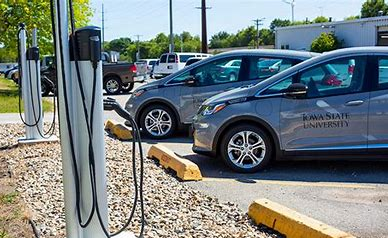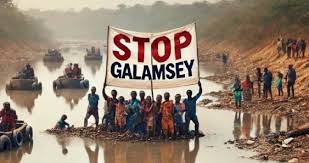In the wake of Niger’s recent coup, the Economic Community of West African States (ECOWAS) finds itself at a crucial juncture. The coup has destabilized the region and threatened the democratic progress that Niger had achieved. As tensions escalate and uncertainty looms, ECOWAS member states are now grappling with the decision of whether to intervene militarily to restore constitutional order. The situation has prompted the bloc’s heads of state to convene a special summit in Ghana, where ECOWAS military chiefs will gather to discuss the potential deployment of a standby force to Niger. This article delves into the intricacies of the crisis, the considerations for military intervention, and the potential implications for the region.
The recent coup in Niger has sent shockwaves throughout the West African region. With a longstanding commitment to democratic governance, the people of Niger were taken by surprise when their president was ousted and the constitution suspended. The coup has not only raised concerns within Niger but has also triggered a regional crisis that demands swift and strategic action.
The Genesis of the Crisis
The political landscape in Niger had been relatively stable until July 26, when the military seized power and removed the president from office. This abrupt power shift caught many by surprise, including the international community. The coup plunged Niger into a state of uncertainty, prompting ECOWAS to consider how best to restore stability while respecting democratic principles.
ECOWAS’s Initial Response
In the immediate aftermath of the coup, ECOWAS demonstrated its commitment to upholding democratic norms by issuing a strong statement condemning the seizure of power. The bloc’s leaders emphasized the importance of a peaceful resolution to the crisis and called for the immediate release of the ousted president. This initial response set the tone for ECOWAS’s subsequent actions.
Drafting Deployment Plans
Just one week after the coup, ECOWAS defence ministers and military chiefs convened to draft deployment plans for a potential intervention. This move indicated a growing consensus among member states that decisive action might be necessary to prevent further destabilization of the region.
Willingness to Provide Troops
Several ECOWAS member states, including Nigeria, Senegal, Ivory Coast, Benin, and Guinea-Bissau, declared their willingness to contribute troops in the event of a military intervention. This collective commitment underscored the gravity of the situation and the regional resolve to restore constitutional order.
Unconventional Supporters
Interestingly, Mali, Burkina Faso, and Guinea, which had previously been suspended from ECOWAS due to their own coups, expressed their support for the junta in Niger. These countries, despite their own challenges, see the coup as an opportunity to align themselves with the new power dynamics in the region.
Niger’s Strategic Significance
Niger’s geopolitical significance cannot be understated. With strategic military bases operated by former colonial power France and the United States, the country holds a pivotal role in the security and stability of the Sahel region. Additionally, its location along a key migration route to Europe makes Niger’s stability essential for managing migration flows.
The Political and Economic Ramifications
The coup has not only shaken the political landscape but has also thrown Niger’s economy into uncertainty. The suspension of constitutional order and the subsequent international condemnation have led to economic disruptions, exacerbating the challenges faced by Niger’s already vulnerable population.
France and the US: Key Players
France and the United States have a vested interest in the stability of Niger. Both countries maintain important military bases in the country, which serve as strategic assets for their broader security agendas. The outcome of the crisis in Niger will undoubtedly influence the positioning of these global powers in the region.
The Ouster and Its Aftermath
The ousting of Niger’s president and the suspension of the constitution have created a power vacuum within the country. As various factions vie for control, the risk of internal conflict remains high. ECOWAS’s intervention aims to prevent a further escalation of violence and provide a pathway toward political reconciliation.
The High-Stakes Talks in Ghana
As tensions escalate, ECOWAS military chiefs are set to convene in Ghana for high-stakes talks. The summit represents a critical moment for the bloc, as member states grapple with the decision of whether to deploy a standby force to Niger. The talks will likely involve a comprehensive assessment of the risks and benefits of military intervention.
Weighing Peaceful Resolution vs. Military Intervention
The ECOWAS summit faces a pivotal choice between pursuing a peaceful resolution through negotiations or resorting to military intervention. While a peaceful approach aligns with ECOWAS’s commitment to democratic norms, the urgency of the situation and the potential for further instability may sway the decision toward a more assertive response.
The ECOWAS Standby Force: What You Need to Know
The ECOWAS standby force is a regional military contingent that can be deployed to address crises within member states. Comprising troops from various countries, the force is designed to provide swift and effective responses to emergent challenges, such as coup attempts and political upheavals.
Potential Outcomes of the Summit
The outcomes of the Ghana summit hold significant implications for Niger and the broader West African region. If ECOWAS opts for military intervention, it could signal a bold stance against unconstitutional power grabs. On the other hand, a commitment to peaceful resolution would underscore the bloc’s dedication to democratic principles.
Conclusion
The gathering storm of the ECOWAS summit in Ghana encapsulates the complexity of the crisis triggered by Niger’s coup. As the region’s stability hangs in the balance, the decisions made by ECOWAS leaders will reverberate far beyond the country’s borders. Whether through peaceful negotiation or military intervention, ECOWAS’s response will shape the trajectory of West Africa’s political landscape.
FAQs
- What led to the coup in Niger? The coup in Niger was prompted by discontent within certain factions of the military, leading to the ousting of the president and the suspension of the constitution.
- Why is Niger’s stability important to the region? Niger’s stability is crucial due to its strategic location, the presence of foreign military bases, and its role in managing migration flows to Europe.
- What role do France and the US play in the crisis? France and the US have military bases in Niger and a vested interest in the country’s stability, which impacts their broader security agendas.
- What is the ECOWAS standby force? The ECOWAS standby force is a regional military contingent designed to swiftly address crises within















